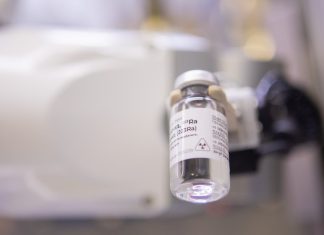Over the past five years, the rate of import of medical equipment to the Russian Federation has continued to grow, and the share of domestic products in the market does not exceed 30%, Kommersant reports, citing a study by the National Rating Agency (NRA). It was planned that in five years the share of products made in the Russian Federation would reach 40% for basic types of equipment and products, but it actually turned out to be one and a half times lower.
Thus, the subprogram on import substitution of medical equipment and products up to 2020 adopted in 2015 by the Ministry of Industry and Trade within the framework of the Federal Targeted Program “Development of the Medical and Pharmaceutical Industry” has not reached its target indicators. The Auditing Chamber confirmed to the outlet that by the end of 2020, the share of Russian products was 28.8%, and in 2019, with a plan of 36%, the actual figure was 27.2%.
4.38 billion rubles were allocated from the budget for the implementation of the subprogram of the Ministry of Industry and Trade for the current year. But the cash execution of the budget was 15% lower than planned, according to the Auditing Chamber. It is specified that the reason is the delayed timing of competitive procedures and the lengthy approval of regulations determining the provision of subsidies to local producers.
On the contrary, the average import of medical equipment and medical products in 2015-2020 doubled, the outlet reports with reference to the NRA. According to the agency’s analyst Maria Sulima, the maximum growth was shown by equipment for pulmonary therapy (medical ventilators), MRI and X-ray. Thus, $577.9 million was allocated for the purchase of medical ventilators in 2020, which is twice as much as in 2015. Last year, MRI devices were purchased for $143.7 million, which is double the amount spent in 2015, and X-ray equipment was purchased for $843 million, which is three times more than in 2015. The main suppliers are China, Germany, and the USA. The Accounting Chamber attributes the increase in the share of imports in monetary terms, among other things, to an increase in prices for foreign products, the newspaper notes.




